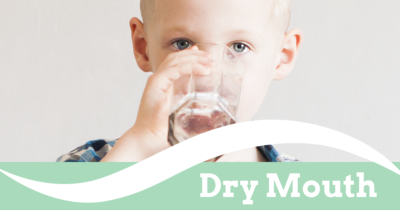
Bad Breath
It is not uncommon for people to experience episodes of bad breath. Common causes can include: poor oral hygiene, untreated oral decay or infections, hormonal changes, side effects of certain medications and diet.
It is important to not only brush and floss your teeth regularly, but also to brush the top of your tongue. If an increased oral hygiene effort does not improve the smell of your breath, then a proper dental exam should be scheduled. Persistent bad breath may be the result of a more serious problem like tooth decay, an infection or possibly a larger more systemic problem.

Dry Mouth
The number one reason for dry mouth is a result of drug interactions. Many commonly used patient medications such as allergy or anti-anxiety medication, have the unwanted side effect of decreasing saliva flow. As a result, the mouth can become dry and lead to a painful burning sensation.
An exam should be scheduled to rule out any systematic problems. A consult with the family doctor may be required to possibly adjust or change any medications to help reduce the side effects. Some remedies to decrease the symptoms of dry mouth include: drinking lots of water, over-the-counter products like Biotene, artificial saliva, sugar-free lozenges or gum, or diet changes like limiting alcohol and caffeine products

Infection
Generally speaking, pain and swelling is an indication of a larger, more serious problem and a proper exam is the place to start. An infection can originate from different sources so a comprehensive exam with an appropriate x-ray can determine the origin and appropriate course of treatment. Treatment options could range from no treatment to a course of medication to a possible root canal or extraction.

Lemon Water
Many patients come into the office complaining of tooth sensitivity and tooth yellowing. Upon examination, they may reveal a daily routine of drinking lemon water. The purpose of the lemon water is to help with digestion and although this practice is controversial, what is not debatable is the harmful effects of acid on the tooth. The lemon juice is very acidic and daily use does not take long to erode and destroy the tooth’s protective enamel layer. Enamel does not grow back and as it thins, the tooth will become more sensitive to temperatures and will become yellower in colour and more susceptible to developing cavities. Simple solutions to reduce the harmful consequences include: drinking through a straw to bypass the teeth, rinsing with water immediately after, avoid brushing teeth for 30 minutes after using or avoid lemon water all together.
